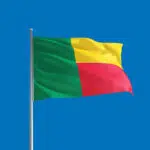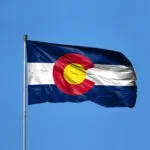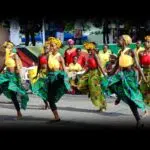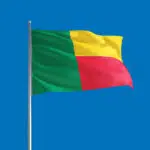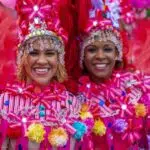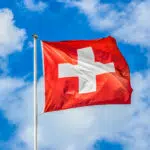National Language Month is observed in August every year to honor the day the language of the Philippines came into existence and became the primary language of the country. The celebration of National Language Month begins today with a flag-raising ceremony. The yearly event was introduced via trial Proclamation No. 1041, which was signed on February 15, 1997. National Language Month also honors former President Manuel L. Quezon, who was born on August 19, 1878, and is regarded as the Father of the National Language.
History of National Language Month
According to Proclamation No. 1041, signed by former President Fidel V. Ramos on July 15, 1997, August is ‘Buwan ng Wikang Pambansa,’ or National Language Month. The anniversary falls on the birthday of the late President Manuel L. Quezon, recognized as the ‘Father of the Philippine National Language,’ who was born on August 19, 1878.
This highlights to Filipinos the necessity of cherishing one’s native language. We are referred to as stinky, decaying fish if we neglect or forsake them. Language is indeed the heart of a nation; it is a part of one’s identity, and it connects individuals. It’s a tool for us to convey our feelings and thoughts, and there’s nothing more valuable than speaking in your mother tongue and communicating with those who speak the same language.
More than 170 different dialects are spoken in the Philippines, with each region having its distinct dialect expressing its personality and culture. Filipino culture is as varied as its dialects, with diverse traditions, customs, food, and even religions. Ones from the North would speak a distinct dialect than people from the South. As a result, during the Spanish colonial period, no language could unite the entire country. When the Americans arrived and the Philippines became part of the Philippine commonwealth, the 1937 Philippine Constitution declared Filipino, a Tagalog-based variety, to be the official language.
Since then, the Philippines has observed National Language Month in August. In 1997, what began as a one-week festival in 1954 was expanded to a month-long celebration. The festival coincides with the birthday of the Philippines’ second president, Manuel L. Quezon, who is known as the “Father of the Filipino Language” because it was he who unified the country’s various languages.
But it’s not just the Tagalog-based Filipino language that’s being praised. National Language Month also commemorates the various indigenous languages in the Philippines to promote, conserve, and encourage the usage of native dialects.
To commemorate the occasion, numerous activities will be held in schools on August 19, which is National Language Day. Filipino declamation competitions, collective oration contests, Filipino essay-writing contests, and the wearing of cultural costumes are examples of these.
National Language Month timeline
The Philippines becomes an independent nation.
Filipino, being the language of most national leaders at the time, including President Manuel Quezon, is declared the official language of the people of the Philippines.
In Grades 1 and 2, vernaculars are employed as languages of instruction; English is the only medium of instruction; and Filipino, the national language, is taught as a topic.
Filipino, which had been the national language, becomes an official language alongside English.
National Language Month FAQs
What are the languages in the Philippines?
The Philippines is home to eight major dialects. Bikol, Cebuano, Hiligaynon (Ilonggo), Ilocano, Kapampangan, Pangasinan, Tagalog, and Waray are all popular dialects.
What is the longest Filipino word?
With 59 letters, the longest published Tagalog word is ‘pinakanakakapagngitngitngitngitngitngitngitngitngitngitngitngitngitngitngitngitngitngitngitngitngitngitngitngitngitngitngitngitngitngitngitngitngitngitngitngitngitngitngit.’ This compounded term implies to continue fabricating a deception that provokes intense rage while claiming not to.
Is Tagalog or Filipino better to learn?
Because Tagalog is more commonly spoken throughout the Philippines, it is the most practical option for most visitors. This was the first language of Manila and southern Luzon, and most Filipinos, even Bisayans, understand it.
How to Observe National Language Month
Research the language
You'd be amazed to learn how many common Filipino words have roots in a foreign language. On Philippine Language Month, try identifying these words and learning more about their origins.
Read about some Filipino authors' work
Reading your favorite Philippine language books and authors is the perfect way to commemorate the day. You can also watch Filipino movies.
Volunteer as a language coach
Volunteer to help out at a language learning class. You can teach the language to newbies of different ages and help them improve their speaking skills.
5 Interesting Facts About The Filipino
Tagalog and Filipino are not the same
Many people mistakenly believe that Filipino and Tagalog are the same languages but they are not.
Influence of a foreigner
Najeeb Saleeby, a Lebanese-naturalized American citizen working in the United States to educate Filipinos on self-government, proposed the establishment of a national language from among the existing languages spoken in the country.
A Spanish attraction
As a result of more than 300 years of colonization, approximately 33% of Filipino words are descended from Spanish.
Their identity is defined by their language
As a result of history, the Philippines has been influenced by colonists, resulting in a blending or even a loss of identity.
Some Filipino words have repeated syllables
For some, the Filipino language may be a tongue twister, and many people appear to find it difficult to learn.
Why National Language Month is Important
Celebrating Filipino history
The history of the Philippines’ language is extensive. Learning about the language's past also helps us grasp the politics that have influenced the present world.
Celebrating art and culture
The Filipino language is also used in music, cinema, literature, and other forms of art. National Language Month also recognizes the importance that language has had in the advancement of arts and culture.
Multilingualism is essential
National Language Month is a celebration of multilingualism and acceptance of diversity. The day serves as a reminder to appreciate various groups and cultures, as well as to work together. Language can serve as a link between worlds.
National Language Month dates
| Year | Date | Day |
|---|---|---|
| 2025 | August 1 | Friday |
| 2026 | August 1 | Saturday |
| 2027 | August 1 | Sunday |
| 2028 | August 1 | Tuesday |
| 2029 | August 1 | Wednesday |





